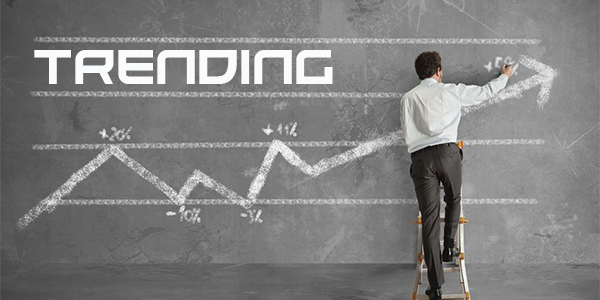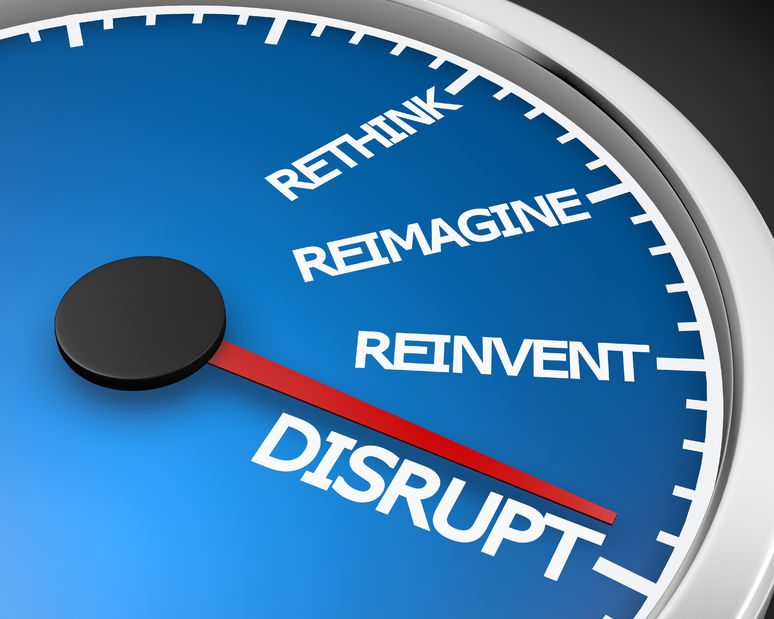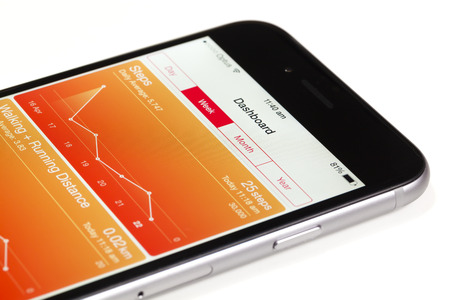The last time you used Google Maps to look up directions, you used a route-finding algorithm. The last time you used video chat, you used audio and video compression algorithms. What about animations? Rendering algorithms. Mathematical formulas and statistical processes are part of your every day. What algorithm did you use last?
Small Business
The rise of e-commerce in the U.S.
According to data gathered from the U.S. Census Bureau, retail e-commerce sales have risen steadily in the U.S. since the first quarter of 2009 with the latest figures totaling over $105.74 billion U.S. dollars. This amounts to approximately one tenth of total retail sales. The rise of e-commerce sales within the U.S. has contributed to the decline in retail purchases among traditional brick-and-mortar retail stores, forcing many of these locations to close. To survive in an increasingly digital world, business leadership within the retail industry must find ways to incorporate e-commerce into their sales strategies. http://www.oramboston.com
What industries do you predict will be disrupted by AI this year?
AI the disruptor! What industries do you expect are due in 2018? Our guesses: healthcare, retail and finance.
“In a world that changing really quickly, the only strategy that is guaranteed to fail is not taking risks.” – Mark Zuckerberg
Could 2018 be the year you quantify your own personal “big data”?
 Have you noticed how crowded the gym is this month? Either you’re in the “new crowd” or you’re one of the regulars waiting out the weeks until the newbies phase out. Regardless, January is a time many people decide to get moving! This year, many will be donning their wearable smart devices as they work out, from FitBits to Apple Watches, health apps bundled into our phones, and more. What’s your favorite workout device? Do you use it for golfing? Swimming? Running? Step counting? Sleep tracking? There are so many great options.
Have you noticed how crowded the gym is this month? Either you’re in the “new crowd” or you’re one of the regulars waiting out the weeks until the newbies phase out. Regardless, January is a time many people decide to get moving! This year, many will be donning their wearable smart devices as they work out, from FitBits to Apple Watches, health apps bundled into our phones, and more. What’s your favorite workout device? Do you use it for golfing? Swimming? Running? Step counting? Sleep tracking? There are so many great options.
These devices provide some pretty awesome personal analytics. It would be interesting to take the time to compile your own and see what story it tells. What do you think your data says about your fitness? Maybe you don’t want to know! We’ve compiled a list of interesting questions you could answer by quantifying your own personal “big data” collected by wearable smart devices.
- How does your daily step count change when you’re traveling? Business travel versus vacation travel?
- Have you found a way to “gamify” your fitness? For instance, when Pokemon Go was the latest viral game, lots of people were more active by getting out and playing the VR+AR game. What else is out there?
- Have you ever tracked your food intake? Did you notice changes over holidays, birthdays or when traveling?
- If you track your fitness and your food, have you noticed a correlation between the days when you put in a good workout and subconsciously reward yourself with a big meal?
- Do you have a way to track your heart rate? If so, what activities have you found that get it going the fastest? Have you ever compared, for instance, 20 minutes on the treadmill versus 20 minutes on the stair climber?
- If you’ve used your tracker for a period of time, do you have a pretty good idea of what you’ve done for the day without looking at the data and log?
- What about tracking your sleep? If you have an infant, you should probably NOT look at this for a year or two!
We think we’re still in “early adopter land” for personal health data. What about you? Do you think this is a craze that will pass, or are fitness trackers here to stay? Will we tap into their full potential and make some serious health impacts with all of the collected data or will it simply sink to the bottom of the dark data lake?
If we’re going to see disruption, somebody’s going to need to create a way to store all of the data in one place. Right now, individual apps track individual stats, from miles walked to weight lost and food consumed. Maybe there’s a startup out there that’s working to combine this all, lumping it with health data similar to Microsoft’s Healthvault initiative. That would be cool to see. Would you sign up for a service that can import all of your information, from your sleeping data to calories consumed, workouts, weight checks, blood pressure readings and so on? Maybe you can steal that idea from us and launch an awesome new business!
One last comment about smart wearables and working out. Remember: Even if you forget your device, your workout still counts!
Antivirus software, firewalls, and anti-malware tools
There are a number of ways small businesses can fight back against online crime, but a recent survey found that the three most popular choices are antivirus software, firewalls, and anti-malware tools. Here’s a breakdown of the numbers: 17% of small businesses use anti-virus software, 16% of small businesses use firewalls, and 14% of small businesses use anti-malware tools.
Have you implemented any of these strategies at your own small business? Knowing where to start can be intimidating, but we’ll be happy to walk you through the process. Cyber security is one of the easiest, most effective things you can do to keep your business safe. http://www.oramboston.com





